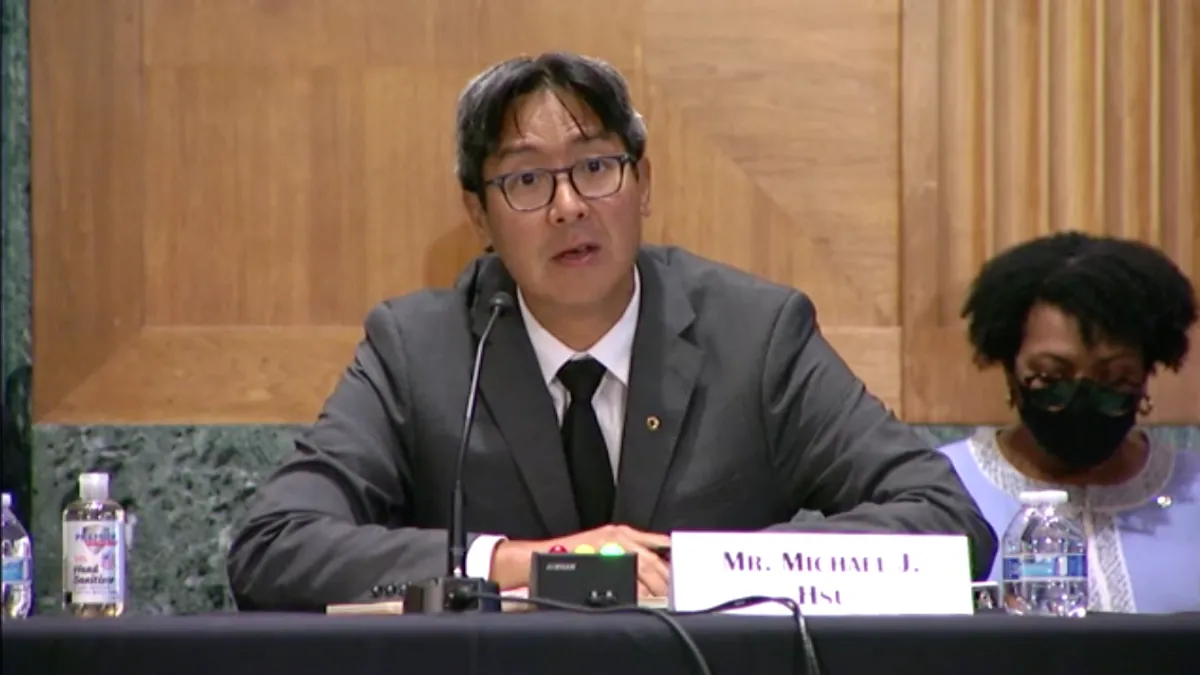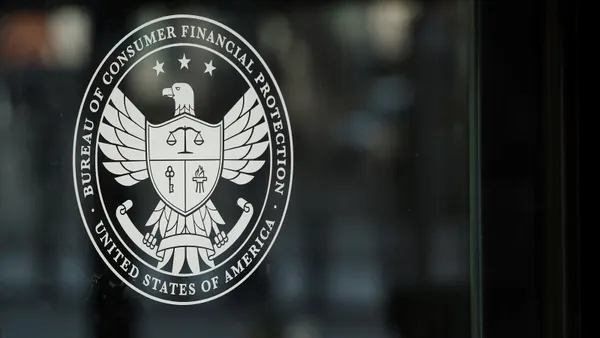Dive Brief:
- Acting Comptroller of the Currency Michael Hsu called Wednesday for federal money transmitter licensing standards to replace the state licensing system that currently covers payments companies.
- Payments companies pose an increasing risk to the financial system as they take on banking functions like accepting paycheck deposits and consumer lending, Hsu said. That “blurring” of the roles of payments companies and banks could lead to a financial crisis similar to the one in 2008.
- Congress should “create a federal framework for payments regulation,” Hsu said during his speech at Vanderbilt University. “Doing so would provide a clearer path for innovation and growth in payments with less risk of blurring and to financial stability.”
Dive Insight:
Hsu raised concerns about the growing payments industry in 2022, during a conference hosted by The Clearing House and the Bank Policy Institute in New York City. Big tech companies moving into payments and lending was changing the risk profile of banking in “profound ways,” he said at the time.
Two years later, Hsu’s concerns remained the same. He pointed to “deposit-taking-like activity” from payments companies as particularly concerning. “Any entity managing money on behalf of customers can face a run if those customers have doubts about the safety of their money,” Hsu said.
Wednesday’s speech was the first time Hsu has publicly supported the recommendation from a 2022 Treasury Department report that Congress create a federal framework for money transmitters, a spokesperson for the Office of the Comptroller of the Currency confirmed via email. The OCC is an independent bureau within the Treasury Department.
“State oversight of nonbank payment providers varies significantly, and is generally not designed to address run risk, payments risks, or other operational risks in a consistent and comprehensive manner,” the report said.
Hsu has been the Acting Comptroller of the Currency since May 2021.













